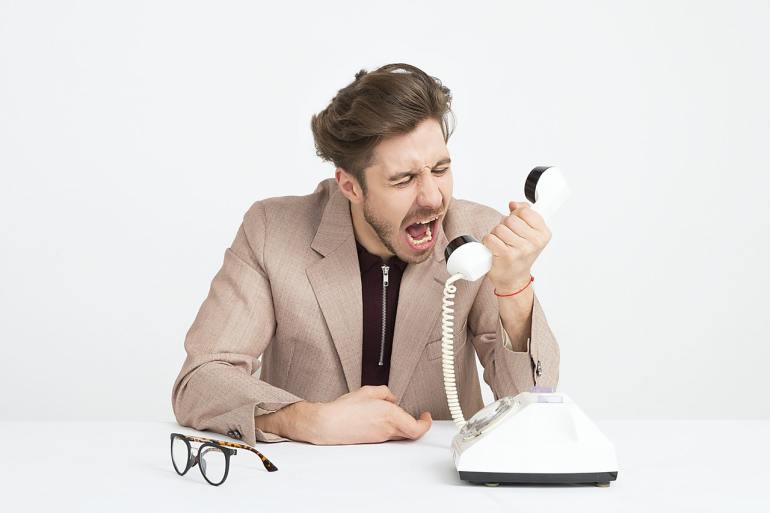Many feel annoyed with others from time to time, but for some they can develop a feeling of complete hatred for another person who has hurt them or negatively affected their lives, and this is normal, but when you start feeling that you hate everyone in general, you need here to understand if you You really hate others or if something else is bothering you.
Feeling hate towards everyone can make it difficult to live your life and interact with people normally every day, which is reflected in some way in your family relationships and with friends, colleagues and other people in your life.
Hate is also an intense emotion that can negatively affect your mental and physical health.
Reasons why you might hate everyone
Here are some reasons why you feel like you hate everyone, according to Verywellmind.
Stress
can make you feel exhausted, panicky, irritable and even angry, and prolonged stress can lead to outbursts of anger, which can escalate to the point where you feel like you hate everyone.
Social anxiety
makes it difficult for you to interact with people, and leads to feelings of nervousness, fear, embarrassment, and distress. In some cases, people with social anxiety may react to situations that make them uncomfortable due to anger and hatred.
Introverted personality:
While some people tend to open up to others, there are others who prefer introversion.
If you are an introvert, socializing with people outside your immediate circle can be emotionally exhausting, and at times this can lead to hatred for people and situations outside of your comfort zone.
Ideological Differences:
Having different political, religious, cultural or social beliefs and values from others can make you feel anger, and possibly hatred, toward others who you feel are "against you," Kristen Farrell-Turner, PhD, a psychologist, tells Very WellMind.
Frequently feeling angry, frustrated or upset and that you hate everyone can affect your mental and physical health (pixels)
Your mental and physical health
According to Regain, the frequent feeling of anger, frustration or upset and that you hate everyone can affect your mental and physical health.
Which makes life less fun.
Hate is a very extreme feeling compared to other unhealthy emotions such as anger or frustration. Hate leaves little, if any, space for communication or empathy with others.
Feeling hate towards others will also deprive you of the pleasant life experiences, and hate not only requires a great deal of cognitive and emotional energy, but also prevents you from connecting with others and enriching your life.
Hate can also involve feelings of disgust, and if you feel disgust with everyone else you don't want to share anything with them.
And when you eliminate connectedness and empathy, you certainly reduce your cognitive and emotional coping options.
Impact on physical health
hate and family.
And if you suffer from feelings of hate for a long time, you may eventually experience some of the long-term consequences of chronic stress.
Stress can make you feel tired, panicky, irritable and even angry (Shutterstock)
confrontation strategies
Psychologist Turner suggests some strategies that can be helpful if you feel like you hate everyone:
Avoid "all or nothing":
If your hatred of others is rooted in a disagreement with them over a specific issue, try to remember that you can disagree and even get angry with others without hating them.
Not strongly agreeing with someone else's beliefs or behavior does not mean that person is completely bad.
This type of thinking is called "all or nothing" thinking, and it is illogical.
Remind yourself that your hate feelings are about the problem, not the person.
Avoid generalizing:
If your hatred of others is focused on a group of people with a particular belief, race, or religion, then your thinking is illogical because you are generalizing.
You group an entire group of people into one "bad" category and make assumptions about them based on a demographic.
Practice Empathy:
Empathy is an antidote to irrational thoughts.
It is important to understand that no one is completely good or bad.
Putting yourself in someone else's shoes, although not always easy, can go a long way toward increasing empathy and decreasing hate.
Just as you have reasons for your beliefs and behavior, so do others.
Prioritize Self-Care:
It is important to prioritize your needs and take care of yourself.
If you are stressed, for example, you may need to make changes in your life to cope better, or if you are an introvert, you may need to set boundaries that make you more comfortable.
Find treatment:
The treatment your doctor suggests can help you explore your feelings and understand why you hate everyone.
It can also help you be more empathetic, build healthy relationships, and develop alternative coping skills.

